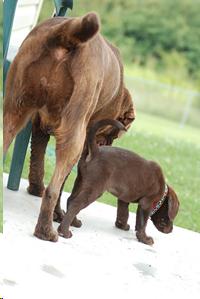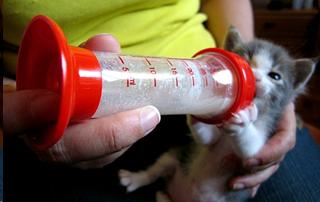
Feeding Throught the Life Cycle Part 2
Table of Contents
Text and Images from Slide
Orphans
- Species milk replacers
- Cow milk is not appropriate
- 15-20 ml/100 g BW
- Temperature 37-38 °C
- Divide in 5 or 6 times a day
- Stimulate peri-anal region



Orphans


But what happens when the mom die or she's just sick and cannot feed the neonates? The ideal situation would be to find a substitute mother to nurse them, but this is very unlikely in most cases. The next best option is to use the appropriate milk replacer for the species. It's important to highlight that cow milk is for the calf, not for puppies and kittens, and the milk compositions is very different as we'll see in a few slides. Puppies and kittens don't have a very well developed satiety system; therefore, we shouldn't feed them until they cannot drink more. The recommended amount is between 15-20 ml per 100 gram of body weight per day. It means that a puppy that weighs 200 grams will need 30-40 ml of milk replacer per day. The milk replacer must be provided warm, between 37-38 ºC and the total amount that was calculated must be divided in five or six times a day. That means that we should feed them roughly every four hours. After feeding them, we have to stimulate the perianal region with a damp towel, just like the mom would do it with the tongue. This is done to stimulate defecation and urination to avoid constipation problem.